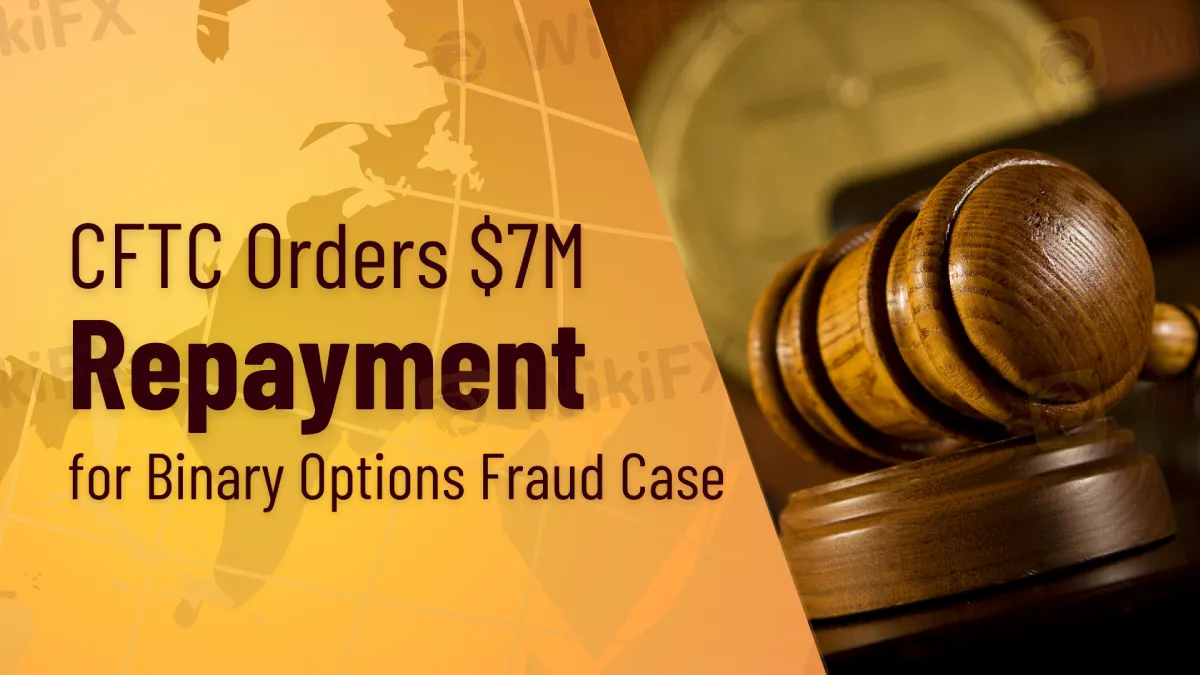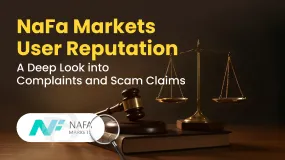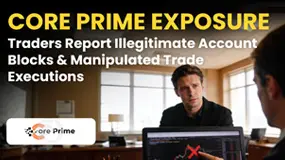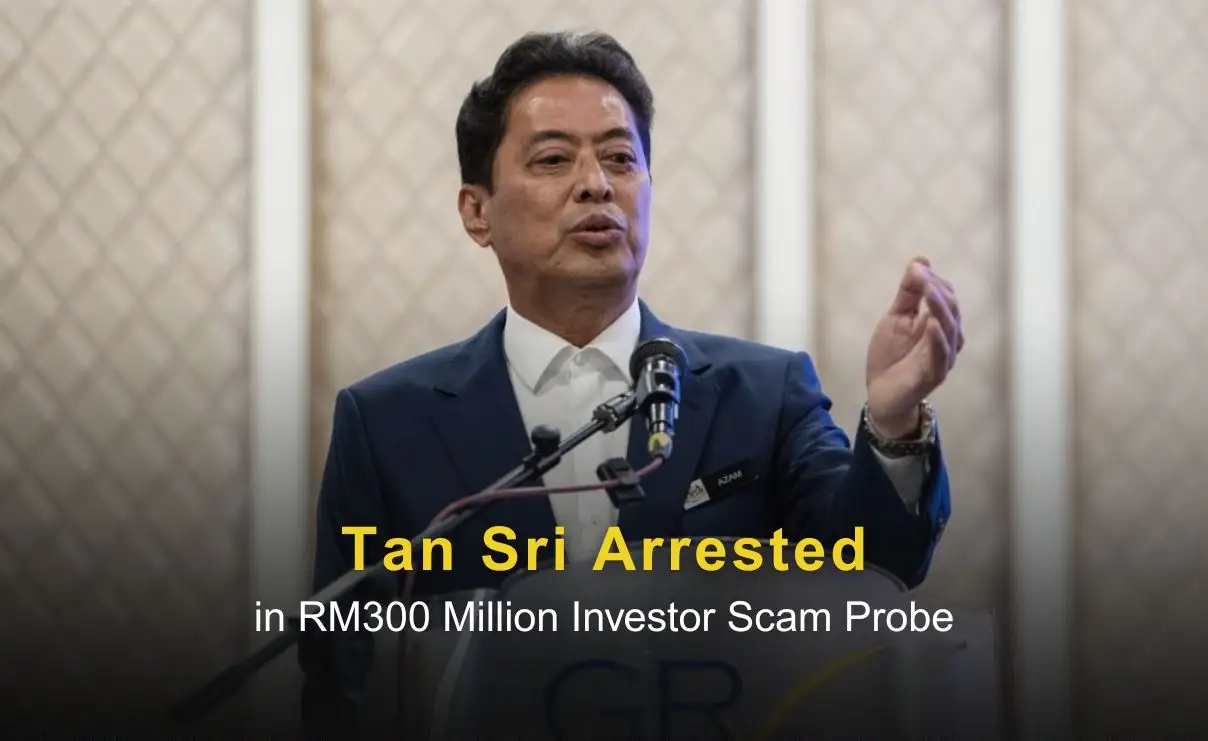Abstract:The CFTC has ordered Yakov Cohen to repay $7 million for binary options fraud, marking a significant step in financial crime penalties against fraudulent platforms.

The Commodity Futures Trading Commission (CFTC) stated that the United States District Court for the Northern District of Illinois has imposed a consent order against Yakov Cohen. Cohen has been forced to refund $7 million in ill-gotten riches resulting from participating in fraudulent binary options operations. This lawsuit demonstrates the CFTC's continuous efforts to prevent financial crime and safeguard investors from deceptive trading platforms.
Binary Options Fraud: Cohen's Role in the Scheme
Beginning in March 2014 and continuing until September 2017, Cohen and his co-defendants planned a massive binary options scam aimed at investors in the United States and throughout the globe. Using bogus company names such as BigOption, BinaryBook, and BinaryOnline, the defendants misrepresented their business procedures and financial competence, duping investors into a scheme meant to maximize the defendants' profits at the cost of their consumers.
The deception was centered on misleading assertions that the binary options provided were real transactions based on actual market circumstances. In truth, the deals were altered book entries that gave the defendants influence over the results, guaranteeing they gained while their consumers lost money. The defendants also misrepresented their financial interests as being aligned with those of their clients despite the reality that they were actively forcing their consumers to lose money in order to boost their own profits.
Fraudulent Trading Platforms and Deceptive Practices
The court determined that Cohen and his accomplices made extraordinary efforts to defraud investors. They misrepresented their actual locations, their workers' names, and how consumer payments were handled.
While investors were persuaded their money was secure, the cash was mixed with the defendants' personal money and moved via offshore bank accounts. Approximately 95% of consumers lost money in these bogus binary options transactions, with Cohen making at least $7 million from the operation.
The CFTC's action, filed in 2019, accused Cohen and numerous other persons and companies of taking part in this broad fraud. While the case against Cohen has been ended with the consent decree, the litigation against the other co-defendants is still proceeding.
Financial Crime Penalties and Cohen's Legal Charges
In addition to the CFTC's legal complaint, Cohen also faced criminal allegations. In February 2019, the United States Attorney for the District of Maryland accused Cohen of wire fraud and conspiracy charges. These allegations were based on the same fraudulent activity described in the CFTC complaint.

Cohen pled guilty to the crimes and was sentenced to 66 months in prison in August 2024. In addition to his jail term, Cohen was forced to pay a $7 million fine, which will be used to repay the victims of the fraudulent scheme. The cash will be awarded via a victim fund run by the Department of Justice.
CFTC Enforcement and International Collaboration
The CFTC recognized the help of many overseas regulatory authorities in developing the case against Cohen. These agencies included the Australian Securities and Investments Commission, the Financial Supervision Commission of Bulgaria, the Central Bank of Hungary, and the Israel Securities Authority. The participation of these worldwide agencies highlights the widespread effect of fraudulent trading platforms, as well as the need for international cooperation in tackling financial crime.
Elizabeth N. Pendleton, Heather Dasso, Stacie Pan, Elizabeth Streit, Scott R. Williamson, and Robert T. Howell were among the Division of Enforcement employees who worked to resolve this case.
Fraud Advisory: Protecting Investors from Binary Options Fraud
As part of its goal to protect the public from financial fraud, the CFTC and the Securities and Exchange Commission (SEC) released a fraud alert informing investors about the dangers connected with binary options trading platforms. Many fraudulent platforms use misleading techniques to alter trade results, fail to credit consumer accounts, and even commit identity theft.
The CFTC strongly advises the public to confirm if a business is registered with the commission before investing any money. The National Futures Association's BASIC system allows investors to examine a company's registration status. If a firm is unregistered, investors should proceed with care.
Reporting Suspicious Activities
The CFTC urges people to report any suspicious behavior or breaches of commodities trading regulations. Tips may be sent using the CFTC's toll-free hotline at 866-FON-CFTC (866-366-2382) or an online tip submission form. Whistleblowers who offer important information that leads to successful enforcement proceedings may be entitled to earn between 10% and 30% of the monetary penalty imposed on offenders.
Conclusion
This case serves as a reminder of the enormous hazards involved with fraudulent binary options platforms, as well as the significance of exercising due diligence while conducting financial transactions. The CFTC's action against Cohen and his accomplices is a critical step in holding perpetrators of financial crimes responsible and ensuring that duped investors get recompense for their losses. As financial fraud schemes change, regulatory bodies such as the CFTC remain dedicated to defending market integrity and protecting the public from fraudulent acts.
Stay updated on the CFTC's $7 million penalty against Yakov Cohen for binary options fraud and how regulators are protecting investors. Visit the WikiFX news page for more details and tips on staying safe from fraudulent platforms.











